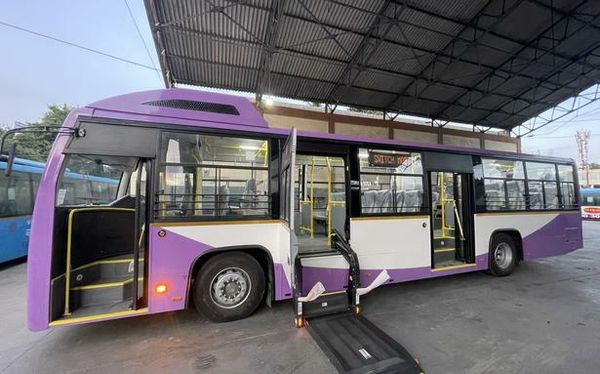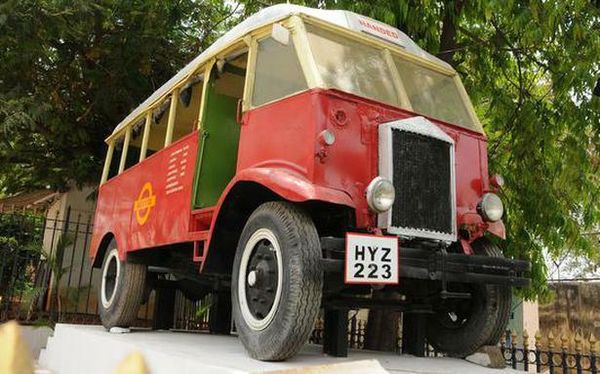The operational efficiency of city buses operated by the Bangalore Metropolitan Transport Corporation (BMTC) has dropped significantly. The staff shortage and non-induction of new buses have impacted city bus services. In the pre-COVID-19 times, each bus operated by the corporation would cover a distance of close to 200 km per day, which has now come down to around 170 km, BMTC sources said. Increasing traffic congestion over the years and poor road conditions have also impacted services.
While the ridership has not gone back to the pre-pandemic levels, the BMTC services are also getting thinner. Presently, BMTC is running a schedule of 5,600 services which used to be 6,200 services during pre-COVID-19 times. Expectedly, the ridership is hovering around an average of 26-27 lakh passengers a day, down from an average of 35 lakh passengers per day.

A BMTC official said, “We are providing services by better utilization of existing staff. Owing to various factors, the recruitment of drivers and conductors did not happen for close to five years. In the last two years, close to 2,500 staff were retired, transferred to other corporations, or left the job. Some of them died. During peak hours, we are running the maximum number of buses possible, and during non-peak hours, we have reduced our services.”
Non induction of new buses and non-recruiting new staff goes against the interest of those relying on city buses for commuting. “Earlier, we were running buses for 14 to 16 hours daily but this has reduced. Increased operations would help in getting more ridership and help people from shifting from private mode of transport to public transport,” said the official.
‘Will hire drivers on contractual basis’
N.S. Nandiesha Reddy, chairman, BMTC, told The Hindu that due to its poor financial condition, the corporation will not go in for fresh recruitment of drivers and conductors. Instead, it is contemplating hiring drivers and conductors on a contractual basis for three to four years. “A committee of officials is studying the feasibility of hiring staff on a contractual basis. Based on their recommendation, further decisions will be taken on hiring,” he said.
Many activists have criticized the State government for not giving priority to BMTC. “BMTC provides life-line services for the city. It had given a great service by providing buses to essential service workers when the pandemic was at its peak. The State government must support the BMTC in the induction of new buses and recruitment of new staff. A fraction of the money spent on Namma Metro and Suburban Rail, if spent on the BMTC, would help in bringing big changes in the city’s transport system. Providing a robust city bus service, making it reliable and affordable would help citizens in a big way,” said Srinivas Alavilli, Head, Civic Participation, Janaagraha Centre for Citizenship and Democracy.
KSRTC facing staff crunch too
The Karnataka State Road Transport Corporation (KSRTC) too is facing a shortage of drivers. Recently, the KSRTC had taken a decision to hire retired drivers of the corporation who are fit to drive on a contractual basis. However, only around 40 drivers showed an interest in joining the KSRTC on a contractual basis.
An official of the corporation said that owing to the staff shortage, the bus fleet could not be utilized to its fullest capacity. Two years ago, the KSRTC was operating 8,200 schedules of services but now operates close to 7,200 schedules. “We are facing a shortage of 3,200 drivers and conductors. Prior to the outbreak of the pandemic, efforts were made to recruit staff but these were stalled owing to financial burden,” said an official. In the last two years, more than 1,000 bus crew of the KSRTC were retired from services.










